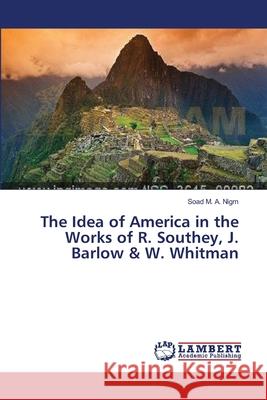The Idea of America in the Works of R. Southey, J. Barlow & W. Whitman » książka
The Idea of America in the Works of R. Southey, J. Barlow & W. Whitman
ISBN-13: 9783659175664 / Angielski / Miękka / 2012 / 336 str.
This book investigates the impact of contemporary political upheavals on the formation of the idea of America in the writings of Robert Southey (1774-1843), Joel Barlow (1754-1812) and Walt Whitman (1819-1892). Focusing on three epic poems, the book considers Southey, Barlow and Whitman as epic writers during a period of great national and international turmoil, and analyses the relationship between the articulation of national identity and the conflicted politics of the day. The book argues that each of these writers, affected by contemporary events and dangers that threatened the unity and stability of the nation, attempted, through his work, to achieve national unity or create national identity. These attempts, it is argued, led to the formation of an idea of America that would serve the national identity of early nineteenth-century Britain in Southeys Madoc (1805), post-Revolutionary America in Barlows Columbiad (1807) and mid-nineteenth-century America in Whitmans Leaves of Grass (1855). The book examines how the epic provided the three writers with the means to reflect and comment on the political events which posed a threat to nationalism in their times.











